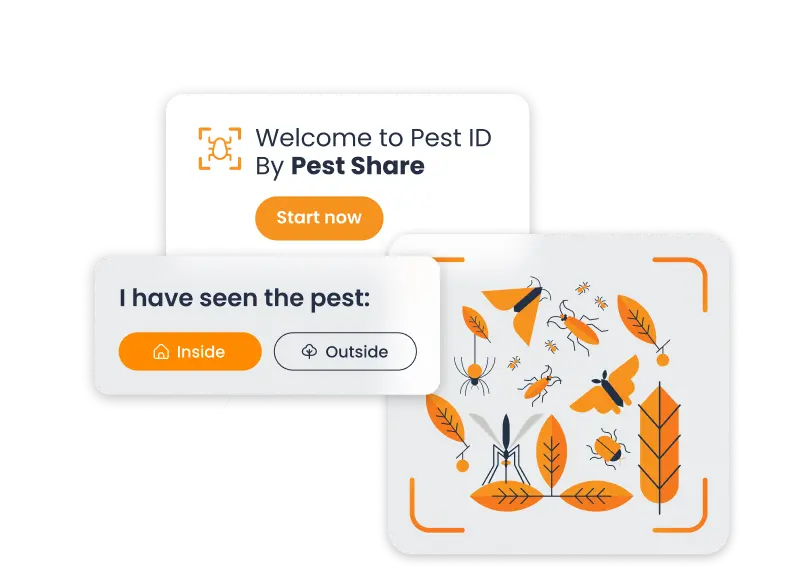Addressing pest control complaints quickly and efficiently is crucial for keeping your tenants happy and your property in good condition. When tenants face issues with pests, it can lead to frustration, potential health risks, and even damage to your reputation as a property manager.
Let’s discuss how to understand, manage, and prevent pest control complaints. By following these steps, you can create a more comfortable living environment for your tenants and maintain your property’s value.
Understanding Pest Control Complaints
Pest control complaints occur when tenants encounter unwanted insects or animals in their living spaces. These complaints can range from seeing a single ant to dealing with a full-blown rodent infestation. Understanding the different types of pest control complaints and their causes is the first step in effectively managing them.
Common pests that tenants complain about include ants, cockroaches, rodents, bedbugs, and spiders. Each of these pests presents unique challenges and requires specific strategies for control and prevention. For example, ants often enter homes in search of food and water, while rodents can squeeze through tiny openings and cause significant damage to property and personal belongings.
Recognizing the signs of pest activity is also essential. Tenants may report seeing the pests themselves, finding droppings or nests, or experiencing bites. By understanding these complaints, you can respond more effectively and provide the necessary solutions.

Fast Fixes. Happy Residents.
Common Pest Control Complaints from Tenants
Let’s delve into some of the most frequent pest control complaints that tenants might bring to your attention. Knowing what to expect can help you prepare and respond promptly.
One of the most common complaints involves ants. Tenants might notice ants trailing along countertops, in cabinets, or near windows. These pests are usually searching for food and can become a nuisance if not dealt with quickly. Regular cleaning and sealing of entry points can help prevent ants from invading.
Cockroaches are another frequent complaint.
Tenants might see these pests in kitchens and bathrooms, where food and moisture are readily available. Cockroaches can spread diseases and trigger allergies, making their presence particularly concerning. Immediate action, such as hiring a professional pest control service, is often necessary to handle cockroach infestations.
Rodents, including mice and rats, can cause significant distress among tenants. These pests not only damage property by gnawing on wires and insulation but can also carry diseases. Tenants might report hearing scratching noises in walls or ceilings, finding droppings, or seeing the rodents themselves. Prompt action is critical to prevent these pests from causing further damage and health risks.
Bedbugs are another pest that can lead to tenant complaints. These tiny insects feed on human blood and can cause itchy bites and sleep disturbances. Tenants might report finding bites on their skin, seeing small reddish-brown bugs, or discovering blood spots on their sheets. Addressing bedbug infestations quickly is crucial to prevent them from spreading to other units.
Spiders, although less dangerous than other pests, can still cause fear and discomfort. Tenants might report seeing webs or encountering spiders in their living spaces. While most spiders are harmless, some species can deliver painful bites. Regular cleaning and pest control measures can help reduce the presence of spiders.
The Impact of Pest Control Complaints
When tenants complain about pests, it impacts more than just their comfort. It can affect tenant satisfaction and retention, damage your property, and even have legal implications.
First, let’s talk about tenant satisfaction. If tenants feel their pest issues aren’t being addressed promptly, they may become frustrated and unhappy. This can lead to negative reviews and even cause tenants to move out when their lease ends. High tenant turnover can be costly and time-consuming for property managers.
Pest complaints can also damage your property. Rodents can chew through wires, insulation, and even structural elements. Insects like termites can weaken the wood in buildings. Ignoring these issues can lead to costly repairs down the line.
There are also legal implications to consider. Depending on where your property is located, you might be legally required to address pest issues within a certain timeframe. Failing to do so can result in fines or legal action from tenants.
Overall, managing pest control complaints effectively is essential to maintaining a good relationship with your tenants and protecting your property.
Managing Pest Control Complaints Effectively
When a tenant reports a pest problem, it’s important to act quickly. Here are some steps to help you manage pest control complaints effectively.
First, respond promptly to the complaint. Acknowledge the issue and let the tenant know that you are taking it seriously. This can help reassure the tenant that their concerns are being addressed.
Next, schedule an inspection to determine the extent of the problem. It’s a good idea to involve a professional pest control service at this stage. They can identify the type of pest and recommend the best course of action.
Once the inspection is complete, communicate with the tenant about the findings and the planned course of action. Transparency is key here. Let the tenant know what steps will be taken to address the problem and how long it will take.
Implement the pest control measures as quickly as possible. This might involve treatments, sealing entry points, or setting traps. Make sure to follow up with the tenant to ensure the problem has been resolved and to address any additional concerns they might have.
Documentation is also important. Keep detailed records of all complaints, inspections, and actions taken. This can help you track recurring issues and provide evidence if any legal issues arise.
By following these steps, you can manage pest control complaints effectively and keep your tenants happy.
Strategies for Preventing Pest Control Complaints
Preventing pest control complaints before they start is the best approach. Here are some strategies to help you keep your properties pest-free.
Regular inspections and maintenance are crucial. Schedule regular pest inspections and address any potential issues before they become major problems. This proactive approach can help you catch pest problems early.
Educating tenants on pest prevention is also important. Provide tenants with information on how to keep their living spaces clean and pest-free. Simple tips like storing food in sealed containers, taking out the trash regularly, and reporting any signs of pests immediately can go a long way.
Implementing a comprehensive pest control plan is essential. Work with a professional pest control service to develop a plan tailored to your property. This might include regular treatments, monitoring, and preventive measures.
Tenant Pest Control Complaints: Best Practices
Handling tenant pest control complaints can be challenging, but having a clear process in place can make it easier. Here are some best practices to help you manage these complaints effectively.
First, create a clear complaint process. Make sure your tenants know how to report pest issues and what information they need to provide. This could be through an online portal, a phone number, or a designated email address. Clear instructions will help you get the necessary details quickly.
Keep detailed records of all complaints and actions taken. This documentation can help you track patterns and address recurring issues. It also provides evidence of your actions if any disputes arise.
Always communicate openly with your tenants. Let them know what steps are being taken to address their complaints and provide updates on the progress. Transparency builds trust and shows tenants that you are serious about solving the problem.
Lastly, follow up with tenants after the pest control measures have been implemented. Ensure that the issue has been resolved to their satisfaction and address any remaining concerns. This follow-up can help prevent future complaints and improve tenant satisfaction.
Role of Property Management Companies in Pest Control
Property management companies play a crucial role in pest control. They are responsible for ensuring that pest issues are addressed promptly and effectively to maintain a safe and comfortable living environment for tenants.
One of the key responsibilities of property managers is to coordinate with professional pest control services. Using a service like Pest Share can make this process easier. Pest Share helps property managers by connecting them with vetted local pest control companies, ensuring quick and effective treatment.
Property managers should also conduct regular inspections to identify potential pest problems before they become major issues. Preventive measures, like sealing entry points and maintaining cleanliness, can help reduce the risk of infestations.
Effective communication with tenants is another critical aspect. Property managers should educate tenants on pest prevention and encourage them to report any signs of pests immediately. Providing tenants with clear guidelines and resources can help prevent pest problems from escalating.
Communicating with Tenants about Pest Control
Good communication is key to managing pest control complaints and preventing future issues. Here are some tips for effectively communicating with your tenants about pest control.
Be empathetic and understanding when tenants report pest issues. Acknowledge their concerns and let them know that you are taking the problem seriously. This can help ease their frustration and build trust.
Provide tenants with clear and concise information about the pest control process. Explain what steps will be taken to address the issue and how long it will take. Keeping tenants informed can reduce anxiety and uncertainty.
Educate tenants on how to prevent pests. Share tips and resources on maintaining cleanliness and spotting early signs of pest activity. This can empower tenants to take proactive measures and reduce the likelihood of infestations.
Keep the lines of communication open. Encourage tenants to report any pest issues promptly and provide them with an easy way to do so. Regularly check in with tenants to ensure they are satisfied with the pest control measures in place.
Handling pest control complaints from tenants doesn’t have to be stressful. By understanding common complaints, managing them effectively, and taking preventive measures, you can keep your properties pest-free and your tenants happy.
For a hassle-free pest control solution, consider using Pest Share. It connects you with reliable local pest control services and ensures quick, effective treatment.







